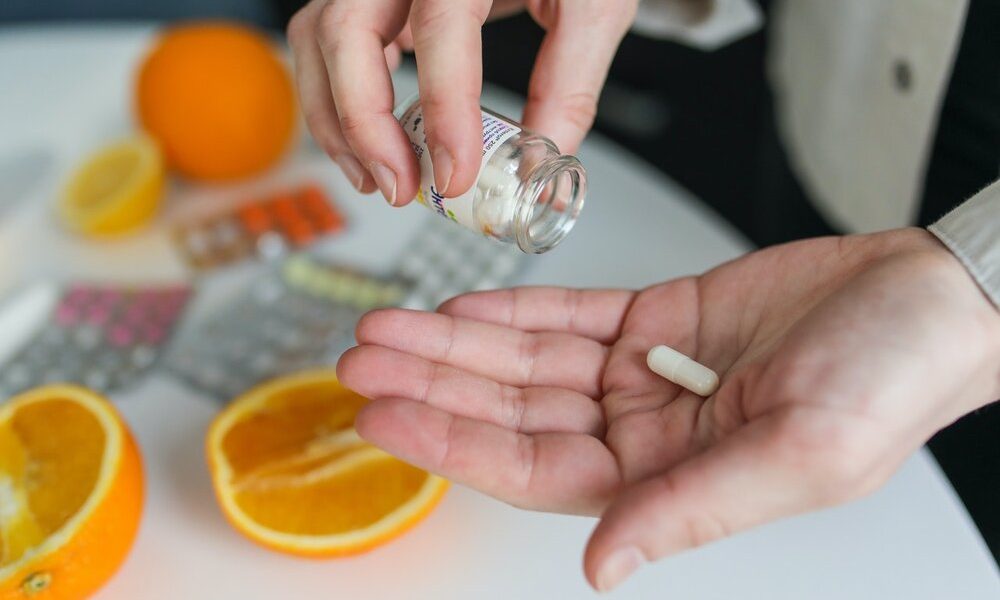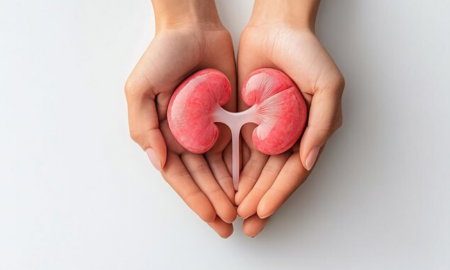
Why Folic Acid Is Recommended During Pregnancy

If you’re expecting or planning to have a child, your first and foremost responsibility is to take care of yourself so that your baby gets all the required nutrition. Trust us! You don’t want to compromise with your baby’s health.

Garon Piceli/Pexels | Pregnancy involves having a proper balanced diet along with other key elements like vitamins, minerals, and folate
Every mom-to-be ensures she does all that’s necessary to her child’s wellbeing. Part of this means you intake a proper balanced diet along with other key elements like vitamins and minerals. One of the most important nutrients gynecologists advise expecting women take is folate – a vitamin that plays a crucial role in the first month of pregnancy.
But why is folate or folic acid so critical during pregnancy? What benefits does it give to the fetus? Let’s find out.
What is folic acid?
Folic acid is the man-made form of vitamin folate, which is popularly known as vitamin B9. Folate allows your body to make active and healthy red blood cells. Remember, your body can’t generate folate on its own; therefore, it’s necessary to obtain it through dietary intake.
Folate is found in a variety of plants and animal foods like spinach, citrus fruits, avocado, eggs, beef liver, etc. Folic acid, on the contrary, is added to foods including ready-to-eat cereal, bread, and flour. In case you’re cutting down on these food items, there’s no need to worry because folate is also easily available in the form of dietary supplements. Meaning, you have enough choices to pick from!

Foodie Factor/Pexels | Folate is found in a variety of plants and animal foods like spinach, citrus fruits, avocado, eggs, beef liver, etc.
Benefits of consuming a folate-rich diet
Keep in mind, your body uses folate for a wide variety of critical functions including:
- Maturation of RBCs (red blood cells)
- Repair, synthesis, and methylation of DNA
- Prevention of anemia/folate deficiency
- Reduction of the side effects caused by a drug named methotrexate, a medication used for the treatment of severe arthritis, psoriasis, and crohn’s disease
A deficiency of folate can cause an array of health concerns in your body. It may even lead to heart diseases, cancer, birth defects, and anemia. Factors that can cause a folate deficiency are:
- Excessive consumption of alcohol
- Dialysis
- Drugs that increase folate absorption
- Poor dietary intake
Folic acid during pregnancy
As we’ve already mentioned, folic acid and folate supplementation are great during pregnancy. It promotes the healthy development of the baby and keeps her at bay from any kind of birth defects, especially neural tube defects and anencephaly (a condition where parts of the baby’s skull and brain are missing).
During pregnancy, it is advised to take folic acid during the first 12 weeks or first month. In case there are chances of having a neural tube defect in the baby, your doctor may suggest you take a comparatively higher dosage for a bit longer.

Leah Kelley/Pexels | Taking folic acid is great during pregnancy since it promotes the healthy development of the baby and keeps her at bay from any kind of birth defects
Point to be noted!
Make sure you’re not mixing your folic acid supplementation with other herbal or ayurvedic supplements. Even if you’re planning to do so, make sure you consult a pharmacist or your doctor before taking it. There could be a possibility that the herbs you’re mixing with your supplements already contain a good amount of folic acid and it may not work best when mixed with some other kind of vitamin.
Above all, we recommend that you be mindful of your supplementation and stop playing around with what goes inside your body. Remember, everything will impact the little life growing inside of you.
More inHealthy Trends
-
`
Princess Charlotte Steps Up with a Royal Reminder for Prince George
Princess Charlotte continues to captivate royal watchers with her poised demeanor and sense of responsibility. At just nine years old, she...
November 29, 2024 -
`
Deal With Lower Back Pain With These Yoga for Sciatica Exercises
Lower back pain can disrupt daily life, especially when caused by sciatica. This condition occurs when the sacral nerve, located at...
November 29, 2024 -
`
8 Expert Tips for Staying Healthy in the Winter
Staying healthy in the winter requires a proactive approach, as cold weather can challenge immune strength and mental well-being. With a...
November 21, 2024 -
`
Concussion in Children: What Parents Need to Know for Safe Recovery
A concussion in children, especially from contact sports, requires careful attention to symptoms and recovery. A concussion, or mild traumatic brain...
November 15, 2024 -
`
Can Hypochlorous Acid Transform Your Skin Routine and Banish Acne?
Hypochlorous acid is rapidly gaining attention in the skincare world thanks to its potential to fight acne and support clear skin....
November 8, 2024 -
`
How Calisthenics Can Help Improve Your Overall Fitness?
Calisthenics is not a mere workout. It is a fitness revolution. Unlike weightlifting or running, calisthenics uses only your body weight...
November 2, 2024 -
`
10 Must-Have Foods for Kidney Health You Need in Your Diet
Our kidneys are powerhouse organs, working constantly to remove waste, balance fluids, and regulate essential minerals like sodium and potassium. These...
October 26, 2024 -
`
The Les Mills Fitness Festival in Riyadh | An Immersive Fitness Experience
The Les Mills Fitness Festival is coming to Riyadh. It is set to be a fitness experience like no other! On...
October 19, 2024 -
`
How Healthy Are Oats Actually? A Closer Look
Oats have become a staple in many breakfast bowls and snack bars. But are oats healthy? The short answer is yes!...
October 11, 2024















You must be logged in to post a comment Login